The Irish may have an exceedingly friendly reputation in the world today, but that doesn’t mean they aren’t more than capable of expressing their annoyance with you.
Irish slang is a wonderful and diverse beast with countless ways to say just about anything.
So, when you get an Irish person angry or annoyed, what sorts of slang terms can you expect them to use?
Today, we’re going to look at some of the most commonly used Irish slang phrases for angry.
Let’s get started.
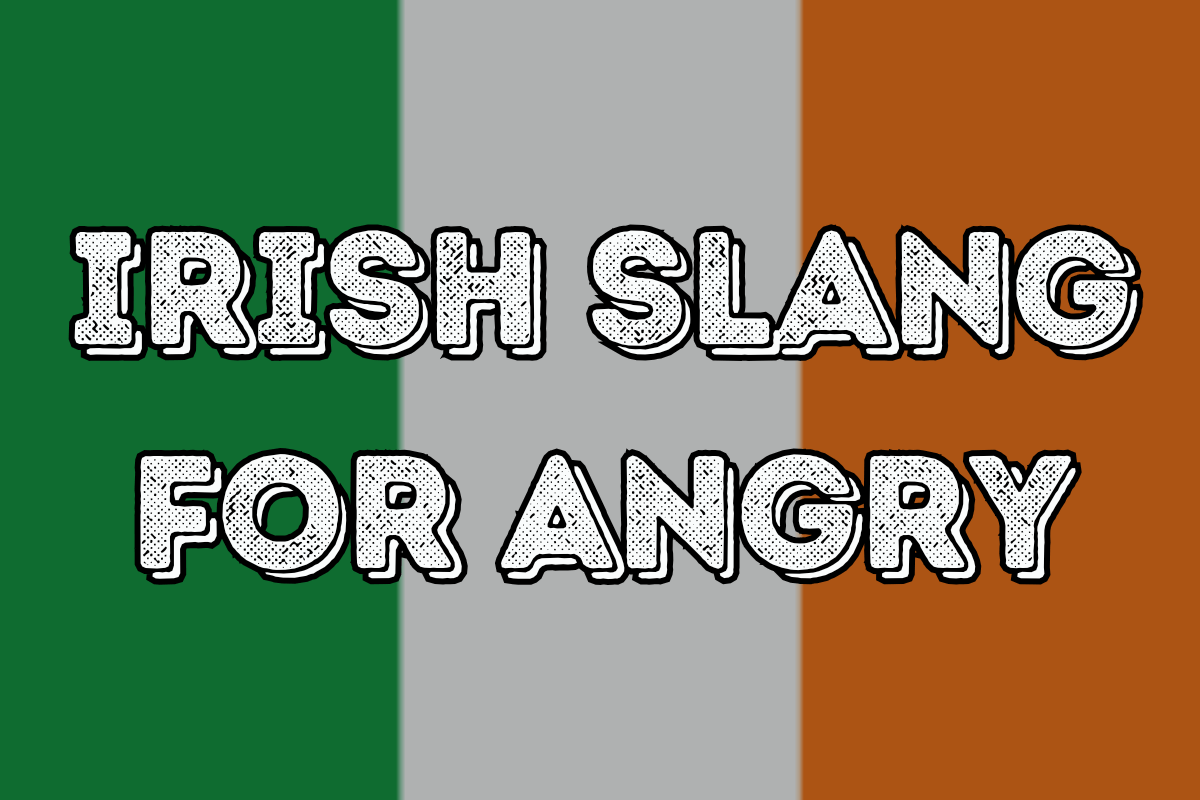
Irish Slang For Angry
Boilin’
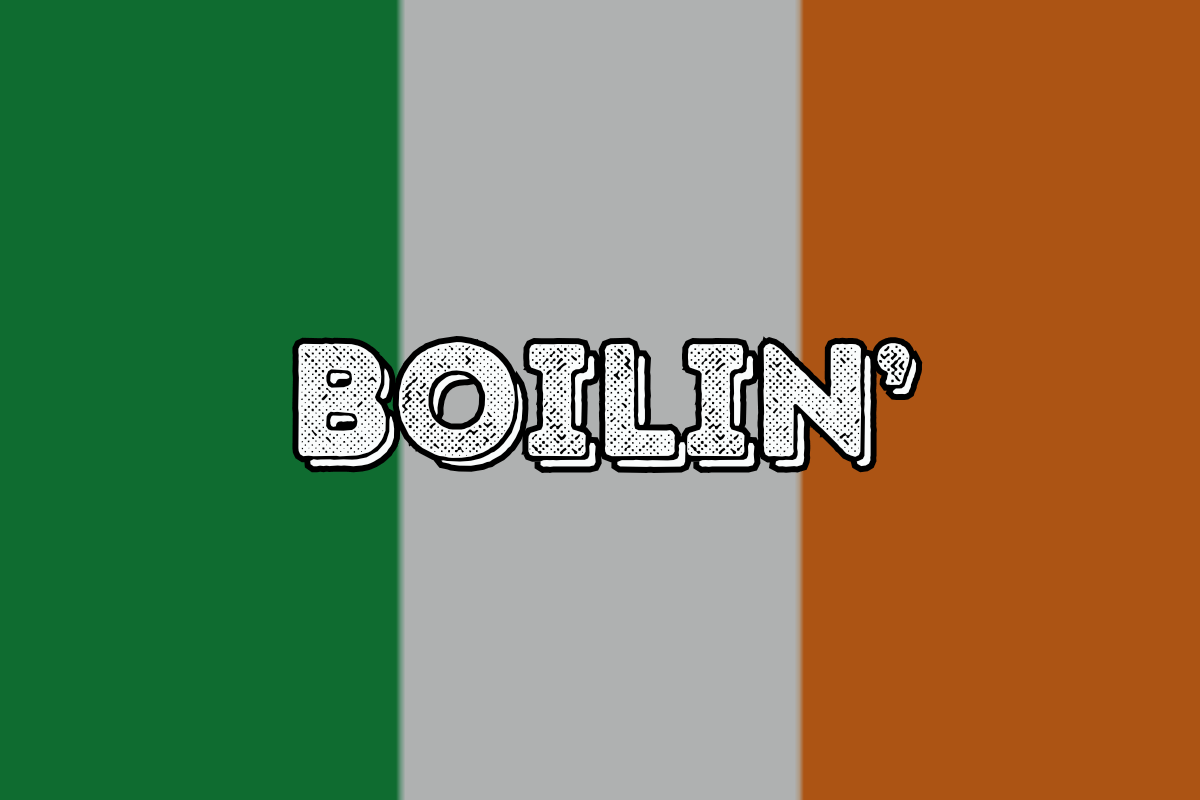
“Boilin’” is an Irish slang term that vividly describes someone who is absolutely furious.
It’s often used to paint a picture of someone so mad that they’re metaphorically reaching a boiling point, ready to bubble over in rage.
The term can be used in both serious and lighthearted contexts, whether describing someone genuinely seething with anger or just a bit annoyed.
It’s common to hear this word in everyday conversation, especially when talking about someone’s reaction to a frustrating situation.
Examples in sentences:
- “Leave him be, he’s still boilin’ over that penalty decision.”
- “I was boilin’ when I saw the price of pints in Dublin!”
- “She was boilin’ after her boss took credit for her work.”
- “You should’ve seen his face—absolutely boilin’ with rage!”
- “He’s still boilin’ about what happened last night.”
Bullin’
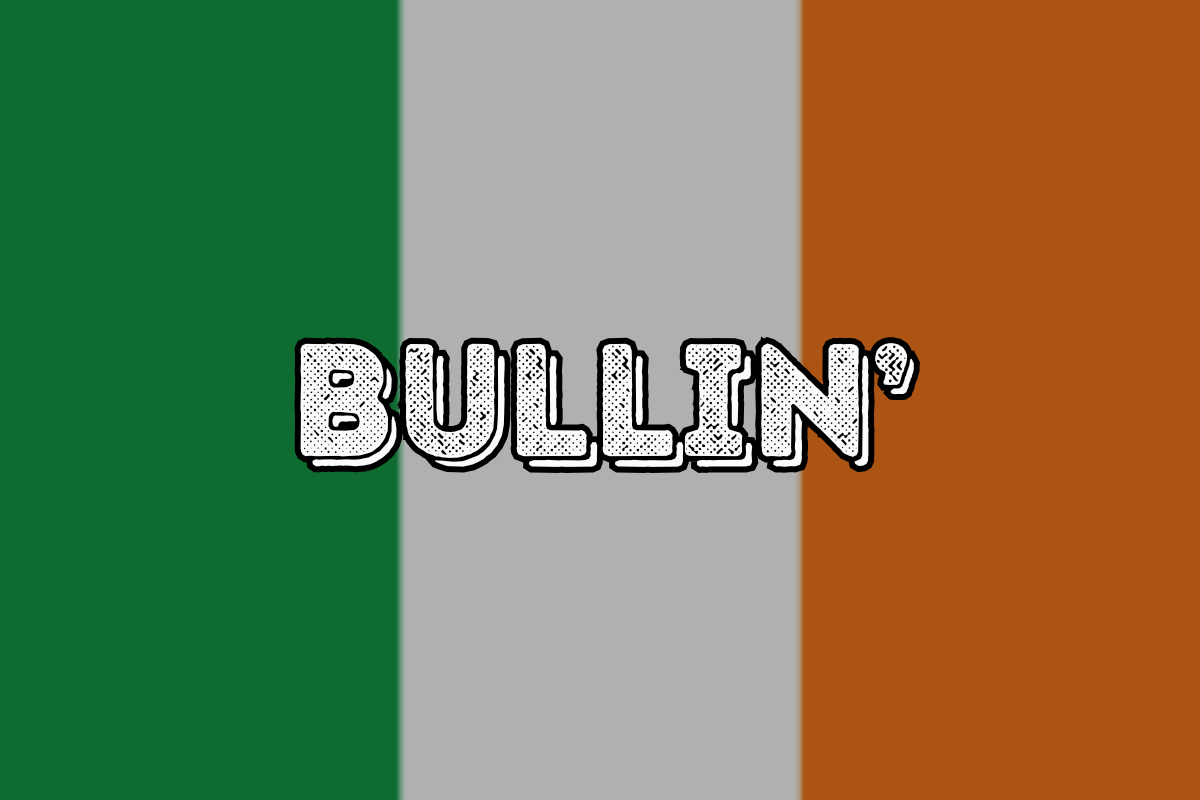
“Bullin’” is a vivid Irish slang term used to describe someone who is absolutely fuming with rage.
It suggests a level of anger that is barely contained, as if the person is about to charge like an enraged bull.
This term is often heard in casual conversations when someone is furious about an injustice, a disagreement, or just something that really got under their skin.
Whether it’s road rage, sports decisions, or an argument in the pub, “bullin’” captures that raw, fiery anger.
Examples in sentences:
- “He was absolutely bullin’ when he got the parking ticket.”
- “She was bullin’ when she found out they’d gone without her.”
- “The boss was bullin’ after that mistake in the report.”
- “He walked out of the room, bullin’ with rage.”
- “You should have seen him after the match—bullin’!”
Eat the Head Off Ya
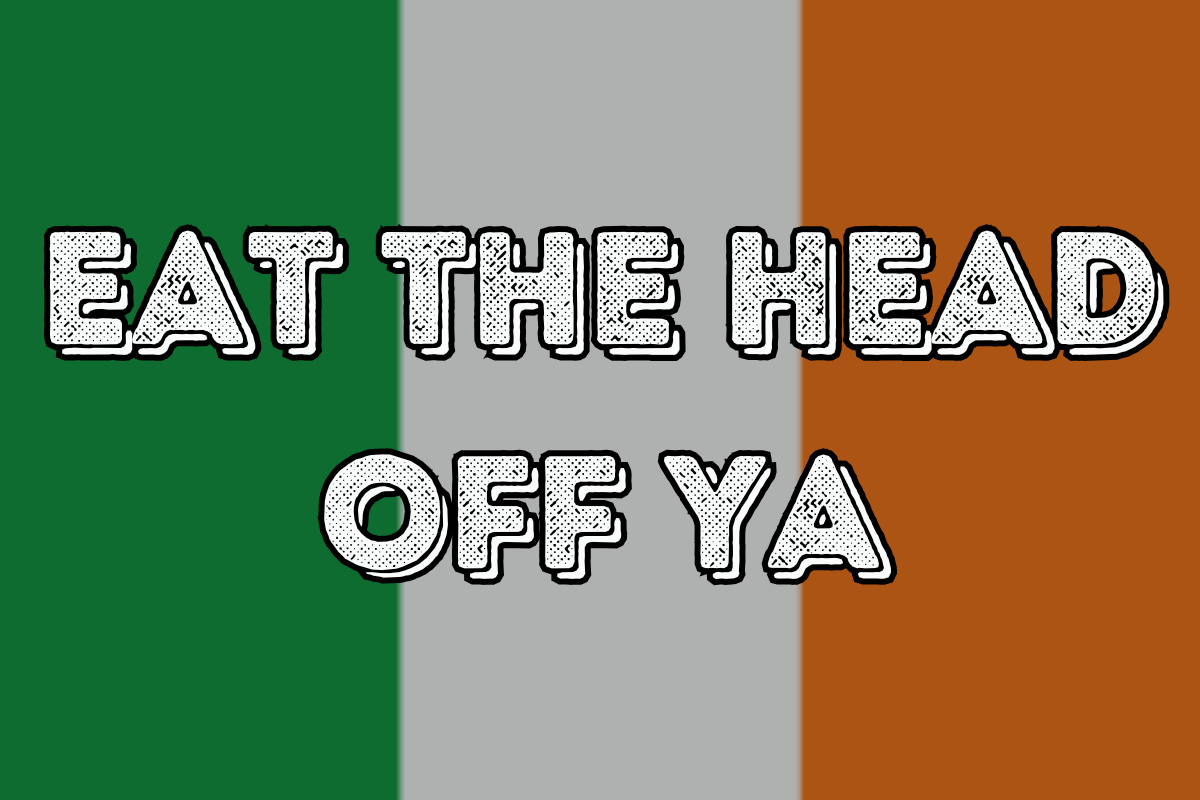
“Eat the head off ya” is a vivid Irish expression used to describe someone furiously telling another person off.
It conveys an image of verbal rage, as if the speaker is about to consume the listener with their anger.
The phrase is commonly used when someone is getting an earful for doing something wrong, whether it’s a child misbehaving, a mate messing up, or someone making an annoying mistake.
Though it sounds aggressive, it’s often used in a lighthearted or exaggerated way among friends and family.
Examples in sentences:
- “If you’re late again, she’ll eat the head off ya!”
- “He ate the head off me for forgetting his birthday.”
- “The boss ate the head off him for missing the deadline.”
- “I knocked over her tea, and she ate the head off me!”
- “Don’t worry, he’s all talk—he won’t actually eat the head off ya.”
Givin’ Out
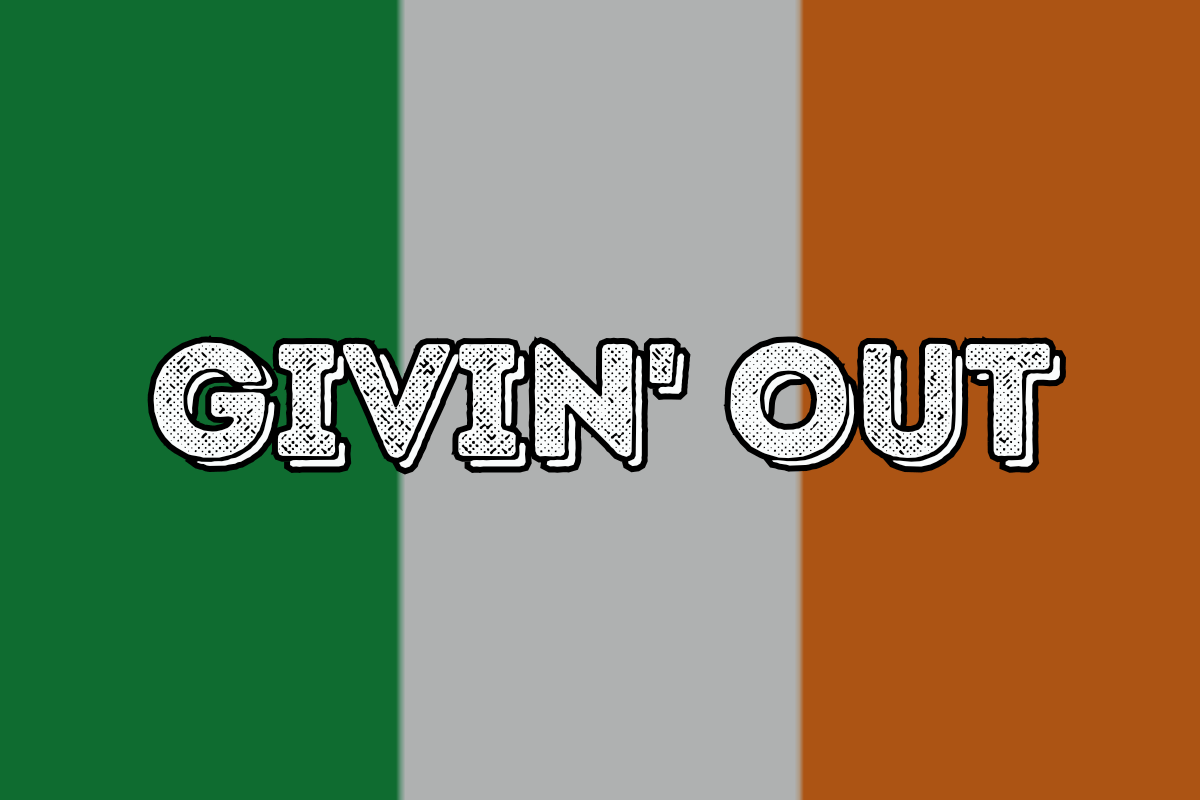
“Givin’ out” is a widely used Irish phrase that refers to complaining, reprimanding, or criticizing someone.
It can range from mild grumbling about the weather to a full-blown telling-off.
Unlike some of the more aggressive-sounding phrases for anger, “givin’ out” can be used in a lighthearted way, like moaning about a minor inconvenience, or in a serious context when someone is being properly scolded.
It’s a versatile and very Irish way of expressing dissatisfaction.
Examples in sentences:
- “She’s been givin’ out about the neighbours all morning.”
- “The teacher was givin’ out to him for not doing his homework.”
- “I was only five minutes late, and she was givin’ out to me like I’d missed the whole day!”
- “Stop givin’ out, it’s not that big of a deal.”
- “He’s always givin’ out about something—never happy!”
Hepped Up
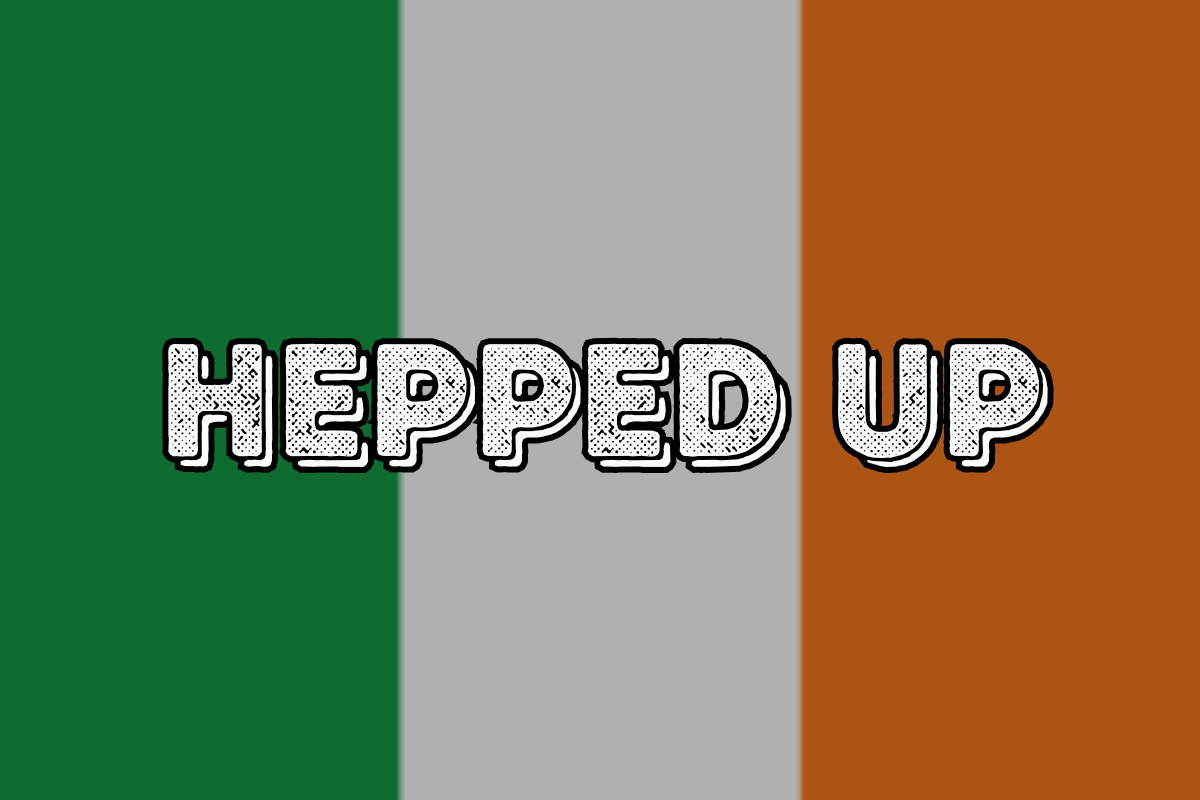
To be “hepped up” means to be in a state of heightened agitation, often due to anger or frustration.
It can describe someone who is so worked up about something that they can’t calm down.
The phrase is sometimes used interchangeably with “hopped up,” which can also imply excitement or nervous energy.
The origin of the phrase is uncertain, but it appears to be a corruption of the older word “hype,” which has meant excessive excitement or agitation since the 15th century.
Some also believe “hepped” could have come from “hopped up,” originally referring to the effects of the hops plant in brewing.
Over time, the phrase evolved into a general term for being wound up, whether in anger or excitement.
Examples in sentences:
- “I’ve been trying to reach customer service all day, and now I’m completely hepped up!”
- “She was hepped up over the argument and couldn’t focus on anything else.”
- “He gets all hepped up when his team loses a match.”
- “I was already stressed, and that traffic jam just got me even more hepped up.”
- “No need to get all hepped up over a simple mistake.”
Hoppin’ Mad
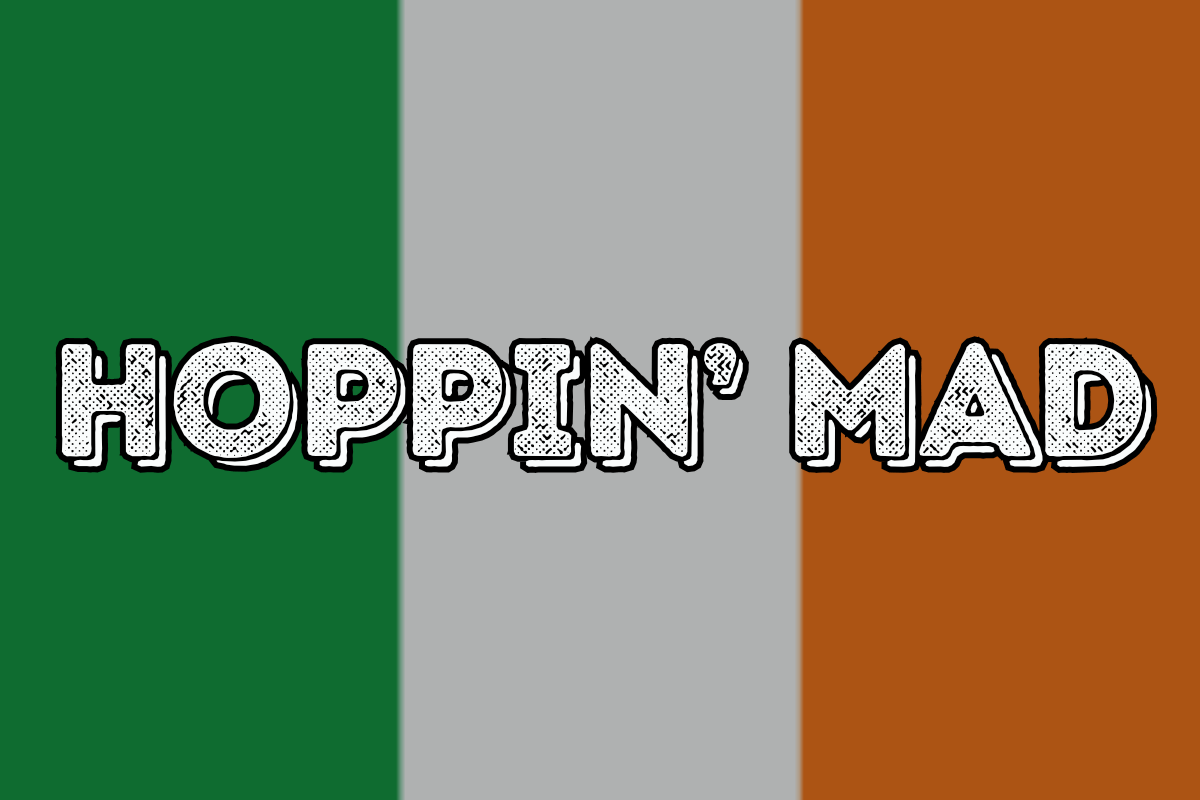
“Hoppin’ mad” is a lively Irish expression used to describe someone who is absolutely furious.
The phrase paints a vivid image of a person so angry they could be physically bouncing or hopping with rage.
It’s often used in a humorous or exaggerated way, emphasizing just how annoyed or enraged someone is.
Whether it’s frustration over a missed bus or full-blown fury at a bad referee decision, this phrase captures the intensity of the emotion.
Examples in sentences:
- “He was hoppin’ mad when he saw the scratch on his car.”
- “You should have seen her, she was hoppin’ mad about being overcharged!”
- “I forgot our anniversary, and now she’s hoppin’ mad at me.”
- “The boss was hoppin’ mad when we missed the deadline.”
- “He went hoppin’ mad when he found out they’d lost his luggage.”
Lamps
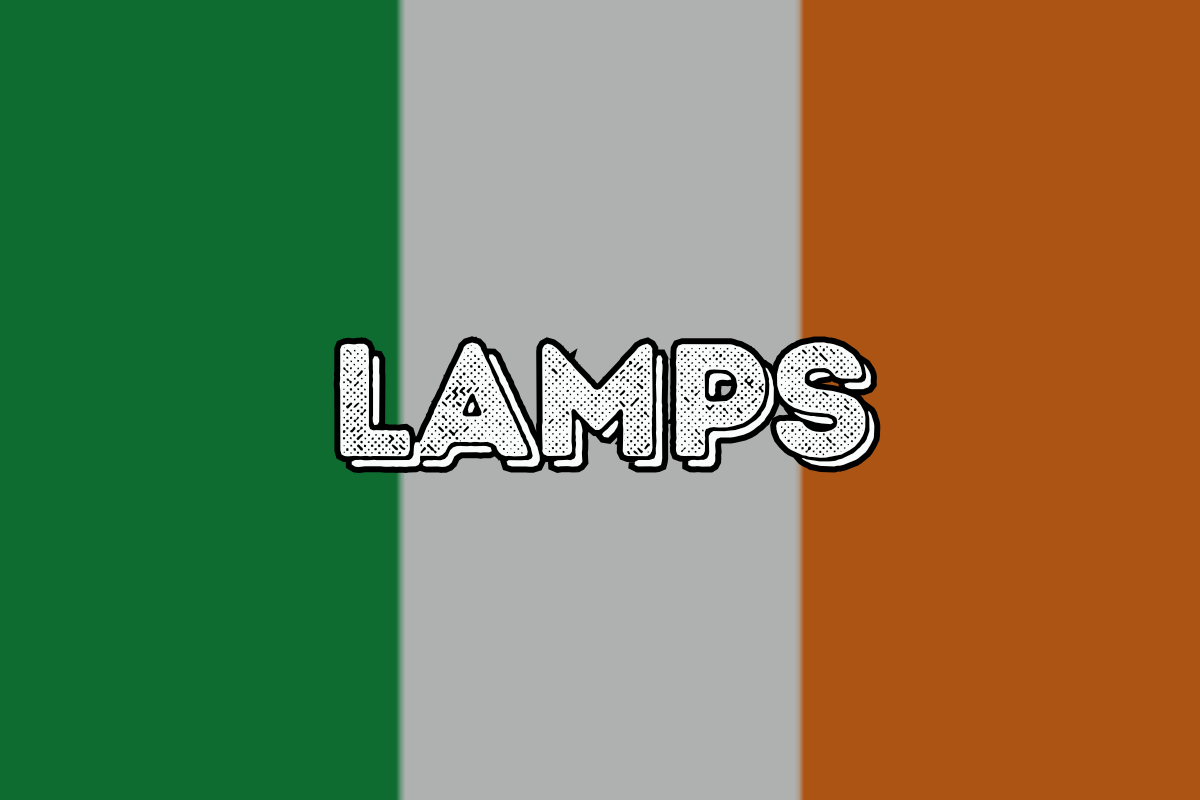
“Lamps” is a slang term for eyes, but in the context of Irish slang, it’s often used to refer to an intense or furious stare.
If someone is “throwing lamps” or “giving you the lamps,” they’re glaring at you in anger.
It’s a way of saying that someone’s expression alone is enough to show they’re fuming.
This phrase likely comes from the idea of eyes being like lamps, lighting up when emotions run high.
The use of “lamps” in this way is particularly common in Ireland, where it’s often heard in casual speech when someone is visibly annoyed or glaring at someone else.
Examples in sentences:
- “She gave me the lamps when I spilled tea on her book.”
- “If looks could kill, the lamps he gave me would have finished me off.”
- “I was only joking, but he started throwing lamps at me!”
- “You should have seen the lamps on her when I told her the bad news.”
- “He walked in late and the teacher gave him the lamps straight away.”
Murderin
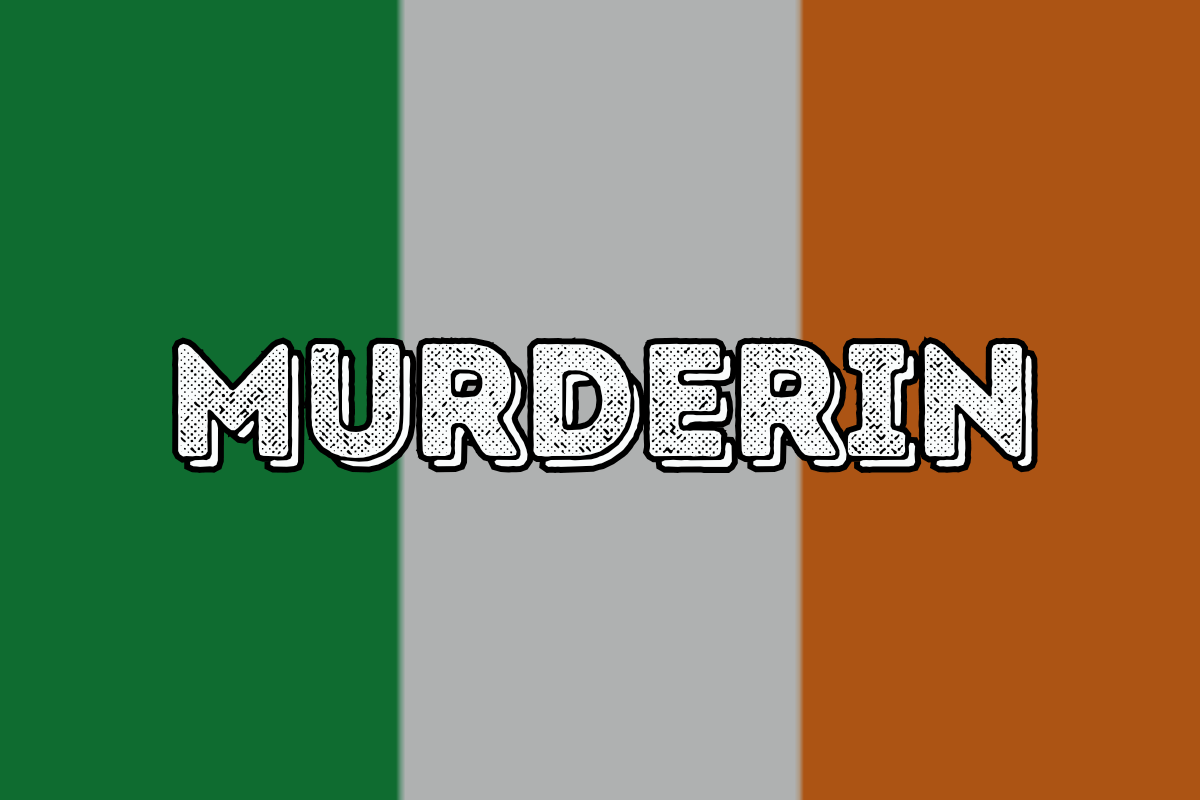
“Murderin” is a strong Irish slang term that describes someone in a fit of intense anger.
If someone is “murderin,” they are absolutely furious, possibly shouting or lashing out in frustration.
It can also be used to describe an extremely aggressive action, like a team dominating their opponents in a game.
The term comes from the word “murder,” emphasizing the sheer intensity of the emotion.
While it doesn’t literally mean someone is committing a crime, it paints a vivid picture of someone being ragingly mad or out of control.
Examples in sentences:
- “He was murderin after missing the last bus home.”
- “She went murderin when she found out he forgot their anniversary.”
- “The coach was murderin at the ref’s decision.”
- “I wouldn’t go near him now, he’s absolutely murderin.”
- “They were murderin the other team – it was 5-0 by halftime.”
Raging
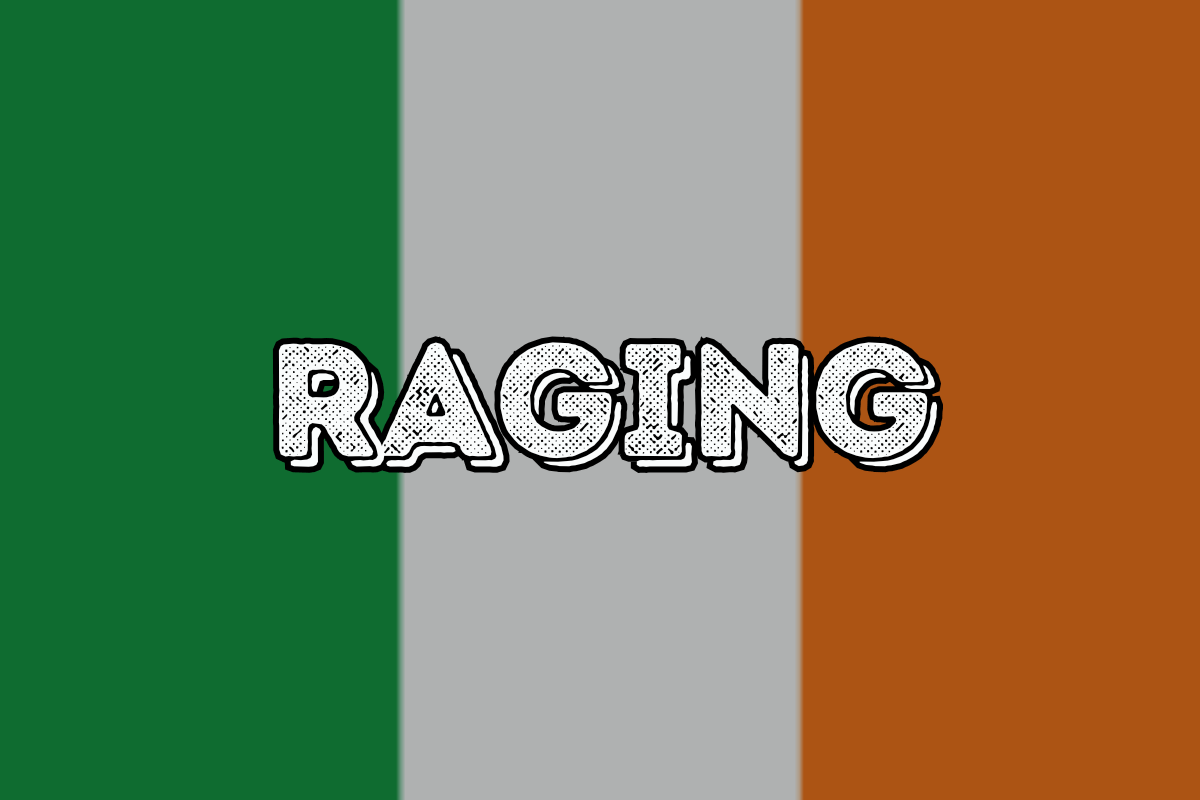
“Raging” or “ragin’” is one of the most widely used Irish slang terms to express anger.
It suggests a high level of frustration, annoyance, or outright fury.
Someone who is “raging” is absolutely livid, whether it’s over a minor inconvenience or something truly infuriating.
While “rage” exists in standard English, its strong usage in Irish slang makes it more dramatic and expressive.
The term has deep linguistic roots, originally coming from the Vulgar Latin “rabia,” which meant anger or fury, and later evolving through Anglo-Norman French before settling into English.
Examples in sentences:
- “I was raging when I missed my flight.”
- “She’s absolutely raging about the parking ticket.”
- “He was raging when he found out they’d left without him.”
- “I’ve been raging about this all day.”
- “He was raging after that awful referee decision.”
Up to 90
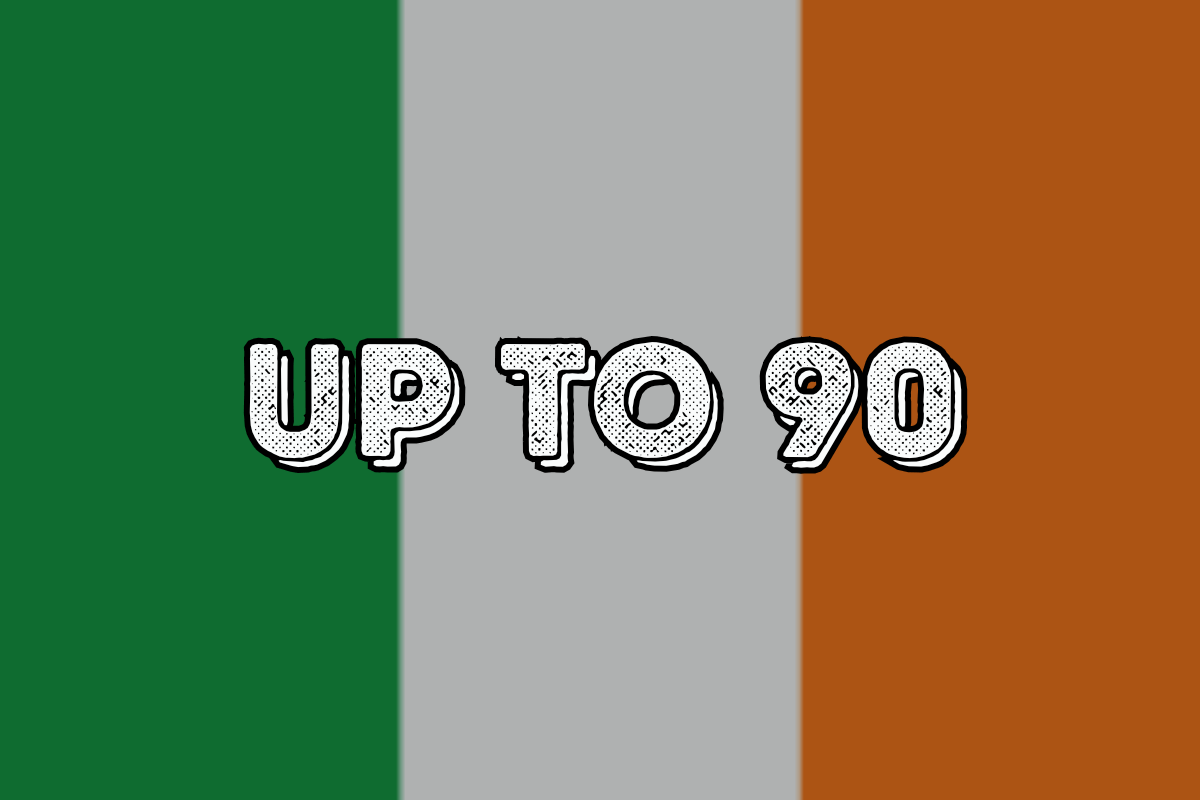
“Up to 90” is a well-known Irish expression used to describe someone who is feeling overwhelmed, frustrated, or on the verge of losing their temper.
It’s often used in the context of being stressed or overworked, but it can also indicate general agitation or annoyance.
The phrase likely originates from the idea of a boiling point, with 100 degrees being the point at which water boils—so if you’re “up to 90,” you’re nearly at the breaking point.
Another possible origin relates to heart rate, as anger and stress cause an increase in beats per minute.
Examples in sentences:
- “I’ve been up to 90 all morning with work.”
- “She was up to 90 trying to get everything sorted before the guests arrived.”
- “He’s up to 90 with all the deadlines coming up.”
- “I told the kids to calm down because I was up to 90 already.”
- “Between the traffic and the emails, I’m up to 90 today.”
So, while many of these can certainly sound strange to non-Irish ears, armed with this knowledge you’ll be able to understand what people are on saying when they use these phrases.
And, unfortunately, it’s not good!
The last thing you want to do is draw the ire of an Irish person, so do your best to avoid hearing these words and phrases!

